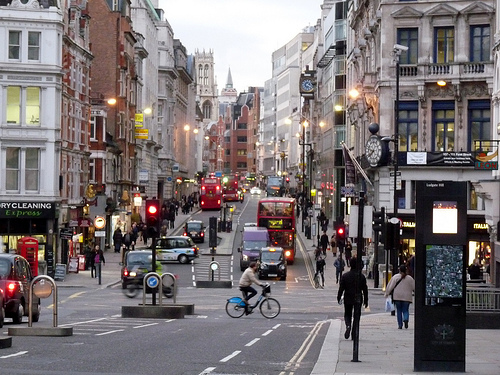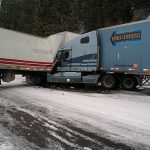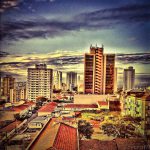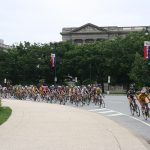London’s congestion pricing has saved lives
Congestion pricing is saving lives and preventing injuries in dramatic numbers in London, inside and outside of the congestion zone. A new study, The Guardian reports, finds that accidents have been reduced by 40% since 2003, when a £5 (approximately $7.50) charge was implemented that year (it was later upped to £8, about $12; then £11.50, about $17.25). Congestion pricing schemes throughout the world haven’t been without controversy, but London’s success serves as a model to other cities considering adopting the idea.

Image from Megan Eaves.
London is one of the world’s most congested cities, with cars often locked in a standstill for a third of their time on the road during peak driving hours. Though it seems that with fewer vehicles on the road drivers would drive faster, increasing the risk of accidents, what the study discovered was that the charge instead brought about a “substantial reduction in the number of accidents and fewer fatalities.” The research found that congestion pricing also reduced traffic, limited emissions and raised more than $300 million yearly to make public transit improvements.
The study, led by Colin Green and Maria Navarro of Lancaster University and John Heywood of the University of Wisconsin-Milwaukee, used Britain’s 20 most populated cities (excluding London) as control groups, and compared the change in accidents within the congestion charge zone to the change over the same period in the other control-group cities.
“The congestion charge reduced traffic accidents in central London by 30 a month,” explains Green. “Accidents that result in individuals being killed or seriously injured also fell, by just under four a month, or 45 a year. This means around 500 people have avoided serious injury or death thanks to the congestion charge.”
Did the congestion pricing charge merely displace the traffic, moving it to other areas of the city, to other times of day, or to non-charged vehicles? Were this the case, the impressive 40% drop would’ve been “offset by more car crashes and fatalities elsewhere and at other times,” writes Green. Yet he and the other researchers actually discovered that benefits, not traffic, spilled over.
Studying areas within a 2km and 5km radius of the congestion pricing zone, the researchers found that “not only did accidents not increase in these areas, there was actually a large positive spillover. The charge decreased accidents dramatically in the surrounding areas – about 20 fewer total accidents a month, with 3.5 fewer serious or fatal accidents.” The study also found that accidents and injuries dropped in non-charged times — before 7am and after 6pm — as well as among fee-exempt vehicles, namely bikes, motorcycles, taxis and buses.
More people rode bikes into central London as a result of the charge, and there was an initial jump in cyclist accidents (1.5 monthly until 2005). But by the end of 2006, the researchers found that the trend had reversed. “It seems likely to us that an initial response to the congestion charge was that more inexperienced cyclists took to the roads. In time, they either gave up or became more worldly.”
Former New York City mayor Michael Bloomberg pushed for congestion pricing for the City back in 2008, but his measure was defeated. But a new plan, called “Move NY Fair Plan” and proposed by former city traffic commissioner Sam “Gridlock” Schwartz, would implement $5.54 tolls on the currently no-fee bridges in New York City. It would also reduce tolls on charged bridges (the Verrazano, Whitestone, Throgs Neck and Triboro), which are currently as high as $16. Schwartz predicts an extra $1.5 billion in revenue yearly and would distribute these funds between mass transit and the city roadway improvements.
Learn more about what Move NY Fair calls a “common sense plan that is fair for everyone and will generate dedicated funding for our roads, bridges, and mass transit system” here.
Related Posts
Category: Regulations, Transportation

















